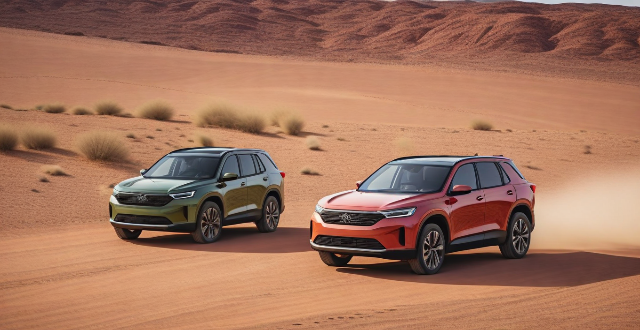Electric and hybrid vehicles are changing the landscape of car sales by decreasing demand for traditional gasoline-powered cars, increasing sales for alternative fuel vehicles, and transforming the automotive industry. Consumers are becoming more conscious of their environmental impact and cost savings associated with these vehicles, leading to a shift in preferences. Automakers are responding by increasing production and offering more model options with improved technology. The rise of electric and hybrid vehicles has also led to changes in design and manufacturing processes, charging infrastructure development, and new sales channels.

Impact of Electric and Hybrid Vehicles on Car Sales
Electric and hybrid vehicles have been gaining popularity in recent years due to their environmental benefits, lower operating costs, and improved technology. This shift towards more sustainable transportation options has had a significant impact on car sales, affecting both traditional gasoline-powered vehicles and the automotive industry as a whole. In this article, we will explore how electric and hybrid vehicles are changing the landscape of car sales.
Decrease in Gasoline-Powered Vehicle Sales
One of the most noticeable effects of the rise of electric and hybrid vehicles is the decrease in sales for traditional gasoline-powered cars. As consumers become more aware of the environmental benefits and cost savings associated with these alternative fuel options, they are increasingly choosing them over conventional vehicles. This trend is expected to continue as governments around the world implement policies to reduce carbon emissions and promote sustainable transportation.
Key Points:
- Environmental Concerns: Consumers are becoming more conscious of their impact on the environment and are looking for ways to reduce their carbon footprint. Electric and hybrid vehicles offer a cleaner alternative to traditional gasoline-powered cars.
- Cost Savings: While the initial purchase price of an electric or hybrid vehicle may be higher than that of a conventional car, they often have lower operating costs due to reduced fuel expenses and maintenance requirements.
- Government Policies: Many countries are implementing policies to encourage the adoption of electric and hybrid vehicles, such as tax incentives, subsidies, and restrictions on gasoline-powered cars. These policies are likely to further increase the demand for alternative fuel vehicles and decrease sales of traditional cars.
Growth in Electric and Hybrid Vehicle Sales
As consumer preferences shift towards electric and hybrid vehicles, automakers are responding by increasing their production and offering more models with these technologies. This growth in supply is meeting the increasing demand from consumers, leading to a surge in sales for these types of vehicles.
Key Points:
- Increased Production: Automakers are investing heavily in the development and production of electric and hybrid vehicles, recognizing the growing market demand for these types of cars.
- More Model Options: With advancements in technology, there are now more model options available for consumers looking to purchase an electric or hybrid vehicle. This includes various sizes, styles, and price points to cater to different customer needs.
- Improved Technology: Advancements in battery technology, charging infrastructure, and driving range have made electric and hybrid vehicles more attractive to consumers, further driving sales growth.
Changes in Automotive Industry Landscape
The rise of electric and hybrid vehicles has also had a significant impact on the automotive industry as a whole, leading to changes in the way cars are designed, manufactured, and sold.
Key Points:
- Design and Manufacturing: Electric and hybrid vehicles require different components and manufacturing processes compared to traditional gasoline-powered cars. This has led to investments in new production facilities and training for workers involved in the assembly of these vehicles.
- Charging Infrastructure: The need for charging infrastructure has created opportunities for new businesses and partnerships between automakers, energy companies, and government agencies to build out networks of charging stations.
- Sales Channels: As electric and hybrid vehicles continue to grow in popularity, automakers are exploring new sales channels, such as online platforms and dedicated dealerships, to better serve customers interested in these types of cars.
In conclusion, the rise of electric and hybrid vehicles has had a profound impact on car sales by decreasing demand for traditional gasoline-powered cars, increasing sales for alternative fuel vehicles, and transforming the automotive industry landscape. As technology continues to advance and government policies evolve, it is likely that these trends will continue to shape the future of car sales.